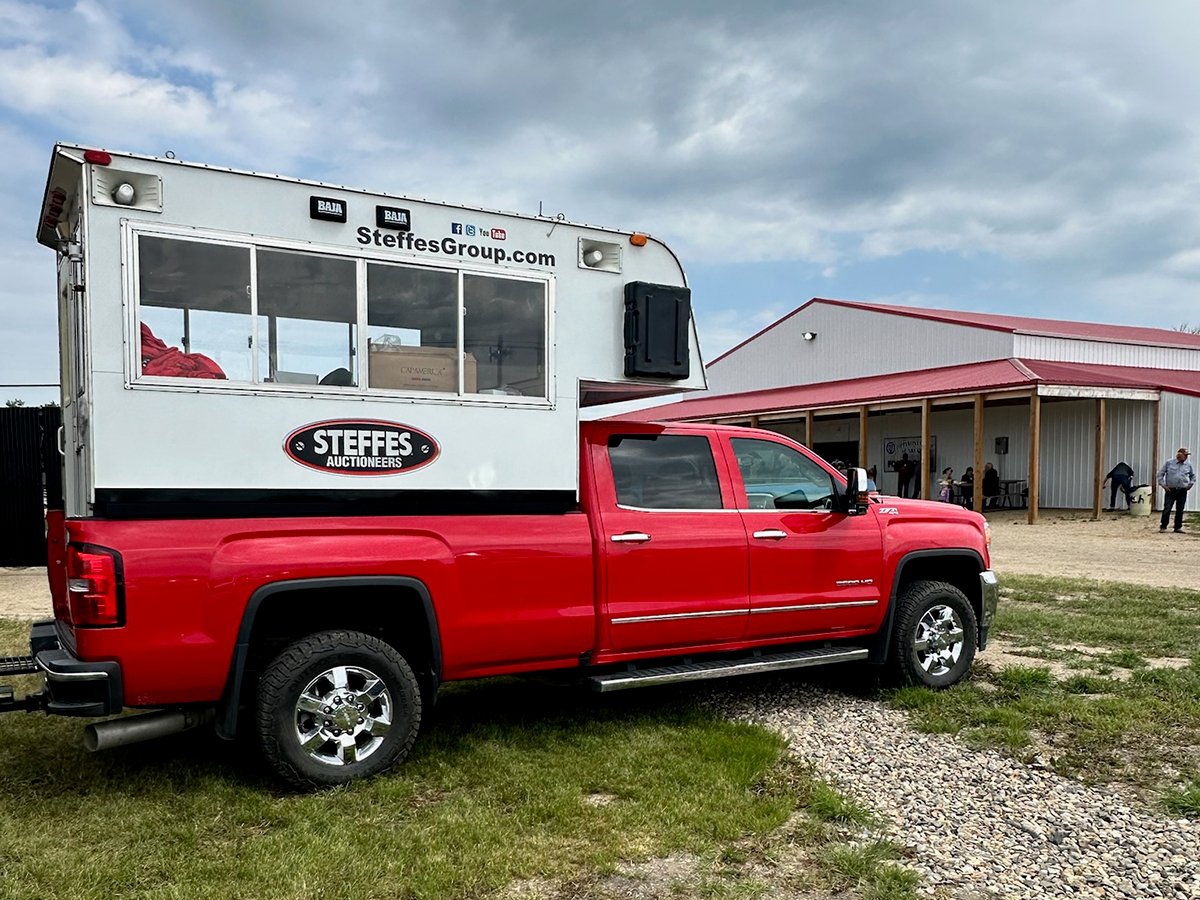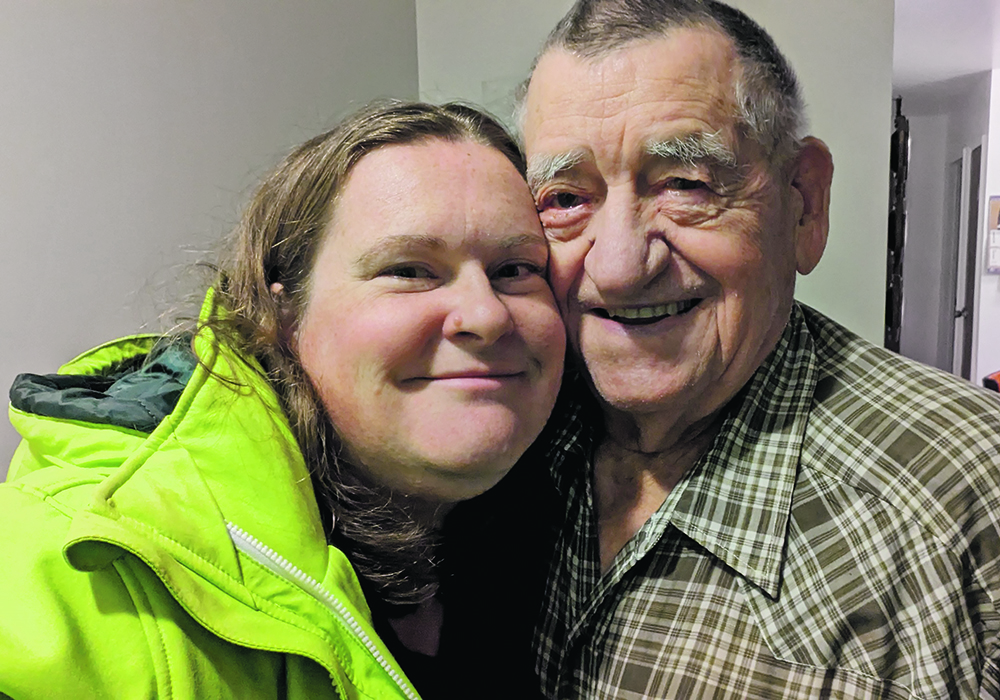Visit with an elderly uncle reminds author of recent survey that found 1.1 million older Canadians report feeling lonely
“You have no idea how happy I am to see you.”
His hug is tight as I start to let go, but I realize how much he needs this right now. I’m a hugger anyway so I don’t mind, especially when it’s a hug from my last remaining great Zimmer uncle.
It’s a Wednesday and I’m passing through his small Saskatchewan town on my way home from a temporary teaching job. I’ve wanted to stop by for the last few months so now was the perfect time.
Read Also

Farm auctions evolve with the times
Times have changed. The number of live, on-farm auctions is seeing a drastic decline in recent years. Today’s younger farmers may actually never experience going to one.
There was nothing interesting on TV, he says, and he was really struggling with what to do until bedtime. A visit from me would be the perfect way to spend an otherwise empty and lonely evening. This sentence alone breaks my heart.
Uncle John is sharp as a tack on the verge of 96 years old, still one of the best huggers I know, fairly mobile with his car and cane over short distances and was still taking care of a four-bedroom home and a wife with dementia until she went into a long-term care home. From then on, it was two four-hour visits a day until she slipped away this past summer after 73 years of marriage. Uncle has since moved into a duplex, finally on his own after getting married when he was 22.
It can be lonely sometimes, so spending time with him is the least I can do. Uncle isn’t alone.
According to Statistics Canada, widows and seniors over the age of 85 are in the top percentage of those dealing with loneliness, with 1.1 million older Canadians (19.2 percent) reporting feeling lonely during a study released in July 2023.
I worry about my uncle, more on the side of his mental and emotional health over anything else and for good reason.
Lonely seniors are more likely to have problems with their mental and physical health than those who are physically and socially active in their later years. Being in the lowest income bracket and as health problems grow in later years, 25 percent of all seniors have unfortunate barriers to social participation, and those seniors were three times more likely to be of that group of lonely Canadian seniors.
Barriers created by the digital world is also a problem.
How many times are people directed to websites for information than receiving help from a living, breathing person?
His eyes get tired quickly and he has difficulty learning new things on the computer, he says during our visit. We talk about ways to make things easier for him, like well-written instructions in big font, pictures of the commonly used icons for streaming, talking about specific problems while I’m here to help in person. In the end, his eyes will be the deciding factor for how he spends his time.
No matter how many problems he has, it is not all doom and gloom.
With his retired daughter living down the street and around the corner, she makes sure he gets out of the house daily, that his bills are paid and that he gets to appointments in Humboldt and Saskatoon.
Being able to stay in his home community of 1,233 people, he gets around to visit other seniors at the long-term care facility where his wife lived and he also can attend get-togethers at the local community centre, which keep him as active as he is able. I know he is lucky that way since not every senior gets that luxury of friends and family close by.
Living in a small community, seniors, like my uncle and retired farmers, are less lonely than their urban counterparts. Twenty-one percent of seniors reported feeling lonely in cities with a million people or more, while only 17 percent of seniors were lonely in towns with less than 1,000.
This is something the Alberta government has taken notice of with $124.7 million in funding for 30 affordable housing projects, $2.1 million to expand in-home services for seniors, and $7.4 million in the 2023 budget for survivors of senior abuse. However, social programming and mental health support are just as important as safety and housing. Thirty percent of Canadian seniors are at risk of social isolation, according to the Alberta government website, and this is a problem we will eventually face ourselves.
This is one reason I am grateful for a rural Saskatchewan upbringing. Because of it, that sense of community seemed easier to find. My favourite memories are nights spent visiting aunts and uncles or elderly neighbours.
Times have changed. Now I have to book time with my brother and his family a month in advance, I rarely see cousins who live 20 minutes away and I’ve felt overly rewarded for taking time to visit my uncle in the first place. The first words out of my mouth when seeing friends at random times is “we should go for coffee,” but we rarely make it happen.
With everyone talking about how busy we are in our 30s and 40s, are we past the nights spent talking over coffee or have we lost that sense of community all together?
Jokes fill my social media feeds about my generation’s inability to even answer a phone call and that the most horrifying thing about Pride and Prejudice is people coming over to your house.
I will admit that maybe these visits from my childhood took more planning than I saw, but considering these visits don’t happen at all anymore, even now that I’m an adult with a car, income and freedom to plan these visits myself, are we missing out on something?
Now that Christmas is over, that doesn’t mean people don’t need social connection. I’m sure everyone can name someone who would benefit from an evening with a loved one from time to time.
After sitting in his living room, talking about nothing for a bit — how he’s been, what I’ve been up to, memories and people who have come to his mind lately — I ask Uncle if he wants me to stop by next week. What about the Wednesday after?
His eyes sparkle at the prospect of another visit or two and we talk about breaking out the cribbage board over a cup of coffee next time.
As I go to leave, he stays watching from the doorway as I get into my car and start off for home. My heart breaks all over again to see him soaking in that last bit of human contact before he’s left for the rest of a lonely evening.
All in all, I worry for the weeks when I won’t be passing through, but I am reminded of how important it will be to make sure to visit again.















